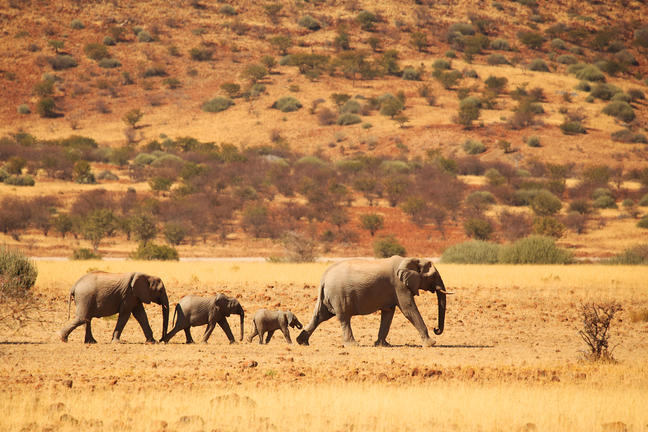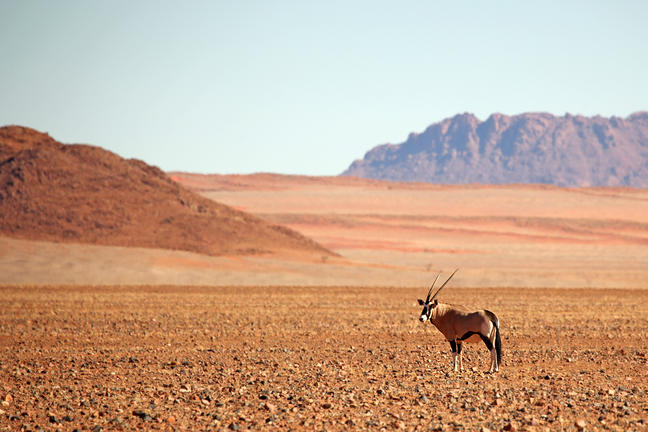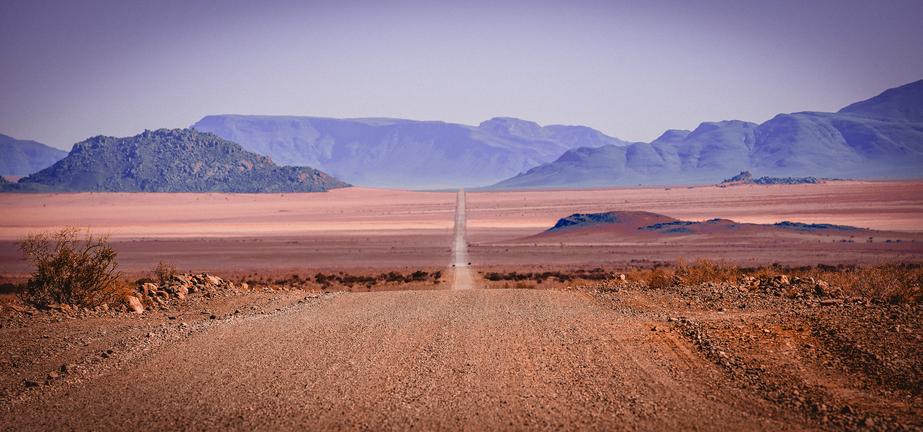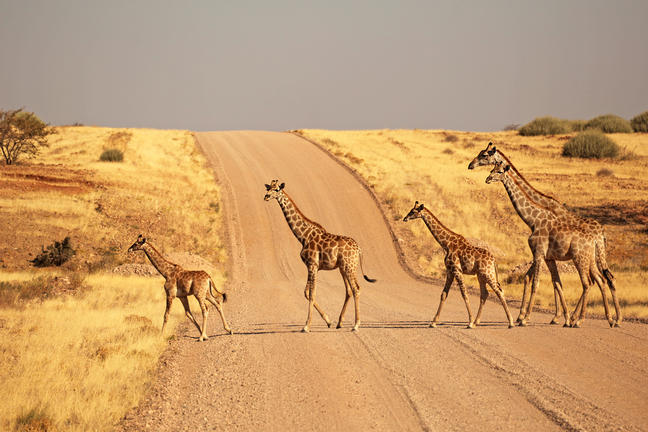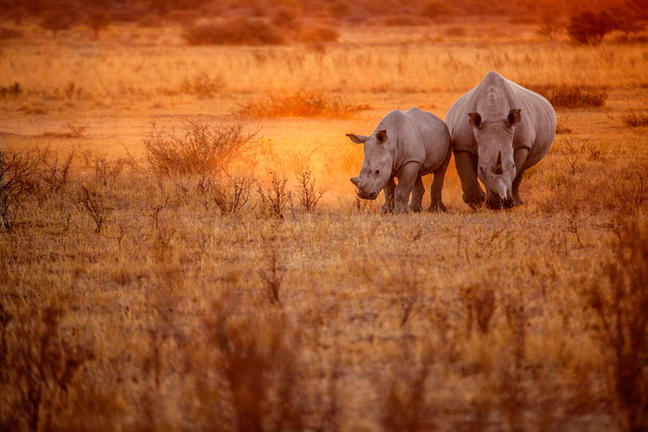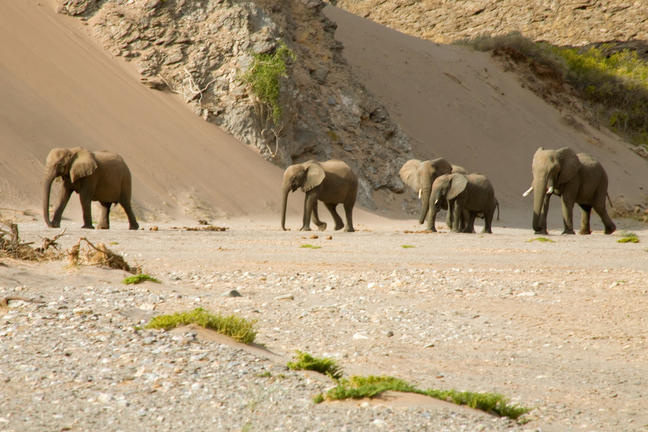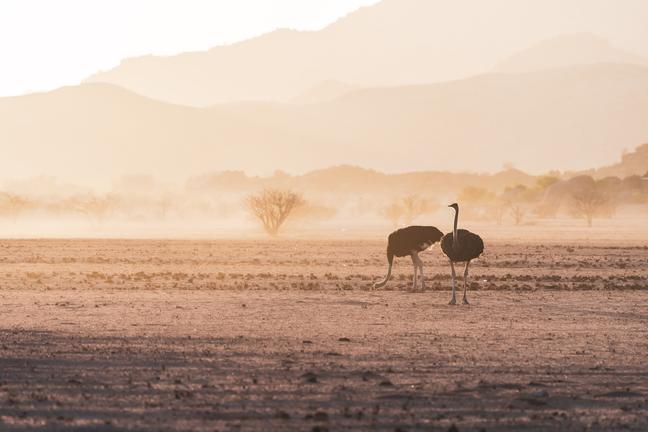Southern Damaraland
Southern Damaraland, from Swakopmund up to the Huab River, has many geological and historical attractions and is a popular region for rugged off-road camping expeditions. The land rises slowly up towards the great escarpment and volcano-induced peaks break up the endless plains.
Giant inselbergs, formed millions ago when lava was all the rage, rise sheer and jagged from the barren plains of the inner Namib Desert. Most impressive of these are Spitzkoppe and the Brandberg Massif - which, in addition to being the highest peak in the country, has the allure of ancient rock paintings and the intriguing White Lady of Brandberg.
Two very large volcanic craters, also millions of years old, hold evidence of Namibia's earliest inhabitants and, at 22km across, Messum Crater is an astonishing sight. It has lost most of its outer ring but has the most fascinating rock formations and ancient plants such as the welwitschia, a variety of lichens, lithops and other desert-adapted flora.
Near Khorixas there is a nucleus of fascinating geological formations: Vingerklip is a striking finger of rock that rises vertically out of the plains while around it the lava-formed flat-tops wouldn't look out of place in Arizona.
The Organ Pipes are a series of dolerite pipes that, oddly enough, resemble organs pipes - though these ones were created 100 million years ago and are probably a bit out of tune by now.
Over 200 million years ago, a great flood swept enormous trees into the desert. These trees were fossilised by the sand and formed what is now a Petrified Forest.
If for no other reason than its great name, you should visit Wondergat: Gat means hole in Afrikaans.
As a result of some lava-induced chemical reaction over 100 million years ago, Burnt Mountain undergoes a spectacular transformation from dull grey to a hundred fiery reds every sunrise and sunset.
Among the red sandstone boulders and hills at Twyfelfontein is the most impressive collection of petroglyphs in Africa. Around 2,500 ancient rock paintings and engravings feature animals, tracks and abstract symbols. The exact age is unknown but archaeological evidence indicates that hunter/gatherers lived here more than 7,000 years ago.
Northern Damaraland
Northern Damaraland up to the Hoanib River has the greatest concentration of game. The terrain rumples into grassy hills dotted with mopane and acacia trees as you travel north-east over the plateau towards Etosha National Park.
Northern Damaraland rises to the Etendeka Plateau and the ground becomes more vegetated as you move north-east towards Etosha National Park. The main attractions are the private concessions that adjoin the great park and here is where you will find that classic African safari - with a Namibian edge.
The famous desert-adapted elephants traverse this vast dry land in search of water and the world's only naturally occurring population of black rhino co-exists with the Damara communities. The endemic black-faced impala, Damara dik-dik and Hartmann's mountain zebra thrive in the region as do several endemic species of bird including Rüppell's korhaan, Herero chat, Monteiro's hornbill, bare-cheeked babbler, Carp's tit and Hartlaub's francolin.
The list of wildlife, birds, plants and smaller fascinations is almost endless and the best way to experience this bountiful region is at the hands of an experienced professional guide: Namibia Tours and Safaris has been providing guided trips into Damaraland since 1990.
